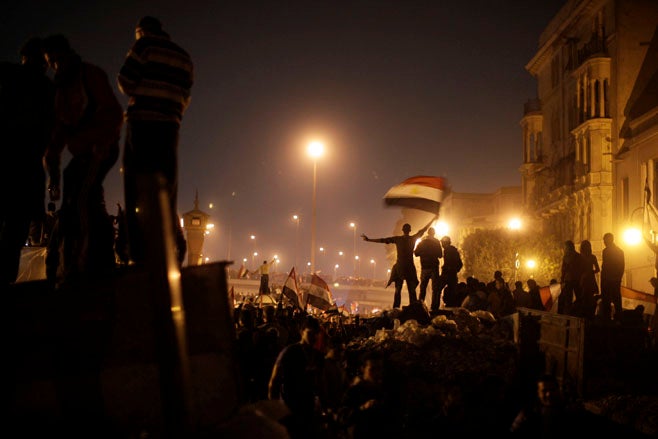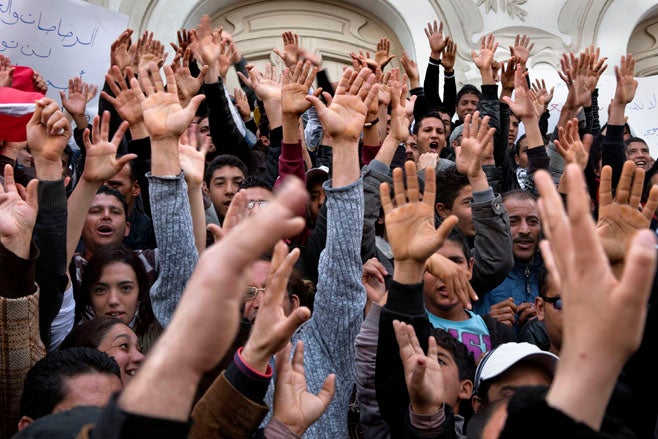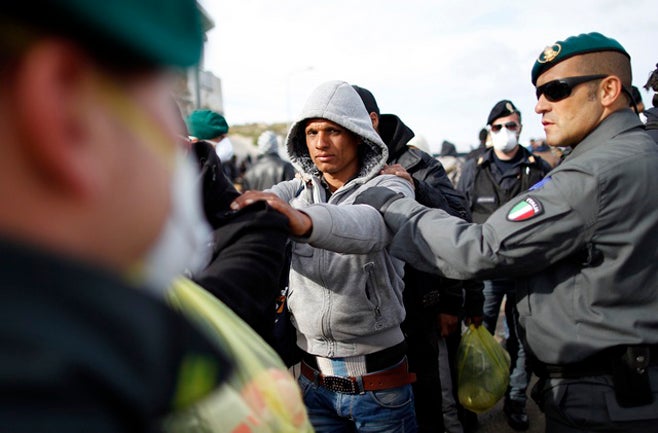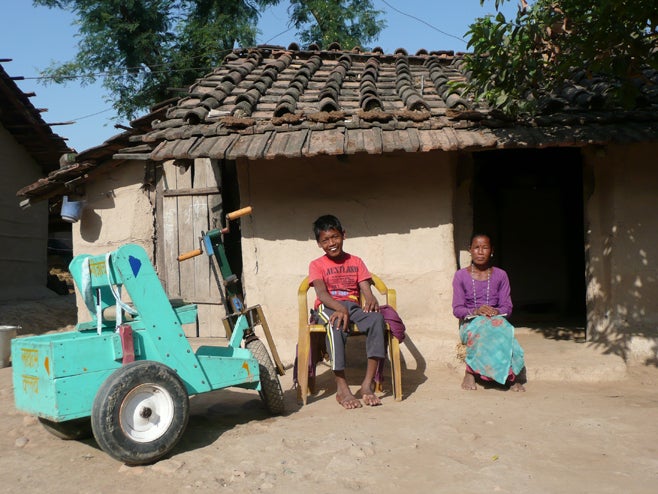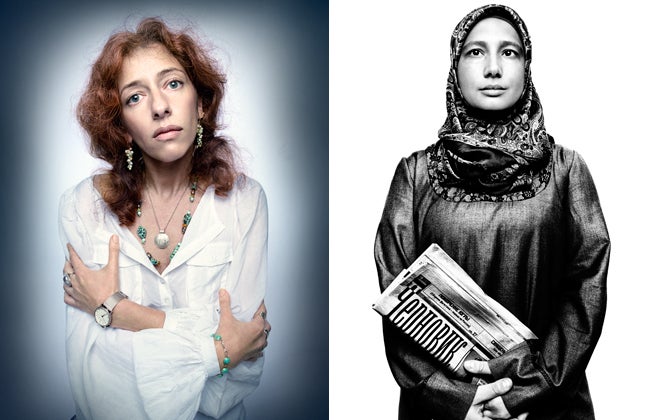In the June 2011 elections, Ollanta Humala, a former army colonel, won a narrow victory over Keiko Fujimori, daughter of former President Alberto Fujimori. Fujimori is serving a 25-year prison sentence for human rights violations during his first presidency.
Progress in holding others responsible for abuses during Peru's internal armed conflict remained slow. Top officials in the government of President Alan García, whose term ended in July 2011, often criticized judicial investigations. In 2010 García signed a decree amounting to a blanket amnesty that would leave most of the crimes unpunished. The measure was eventually withdrawn after national and international protests. Still, the military's refusal to provide information continues to obstruct judicial investigations, and most perpetrators have evaded justice.
In recent years there have been a rising number of social conflicts involving communities protesting actions by the government or mining and other private companies. These have in several cases resulted in violent clashes between protesters and police, and fatalities on both sides.
Confronting Past Abuses
Peru's Truth and Reconciliation Commission estimated that almost 70,000 people died or were subject to enforced disappearances during the country's internal armed conflict between 1980 and 2000. Many were victims of atrocities committed by the Shining Path and other insurgent groups, as well as human rights violations by state agents.
Efforts to prosecute those responsible for these abuses have had mixed results. In August 2011 the Constitutional Tribunal rejected former President Fujimori’s appeal requesting annulment of the verdict of a Supreme Court panel that had unanimously confirmed his 25-year prison sentence for killings and “disappearances” in 1991 and 1992. In July 2011, amid rumors that Fujimori might have cancer, politicians linked to President García’s party and presidential candidate Keiko Fujimori advocated that he receive a “humanitarian pardon,” but he continued to serve his sentence at this writing.
Progress in other cases has been slow. According to the Institute for Legal Defense (IDL), a rights organization that monitors trials, by December 2010 the National Criminal Court—which was given jurisdiction in many human rights cases in 2004—had handed down only 20 sentences, of which 85 percent were acquittals. The only sentence of note by another court was the conviction of 19 former military personnel for kidnapping and killing 35 victims in three different incidents during Fujimori’s government.
A major obstacle has been the military’s failure to cooperate by identifying officers present at army bases during the conflict. The low conviction rate also reflects the National Criminal Court’s insistence there be direct and documentary proof of the responsibility of superior officers, and its unwillingness to credit the testimony of victims' relatives.
Senior officials of García’s administration, including the minister of defense and the vice-president, frequently criticized human rights trials. In August 2010 García signed a decree that would have halted prosecutions in many cases by applying a statute of limitations. He later withdrew it after intense domestic and international criticism. Officials of the current government have also opposed human rights trials, including the current minister of defense, retired Gen. Daniel Mora, who said in a September 2011 radio interview: “I think that we should arrive at a full-stop solution and reconciliation of the country.”
Unjustified Use of Lethal Force
In June 2011 the human rights ombudsman reported more than 200 ongoing social conflicts, many related to new mining ventures. Several have resulted in violent clashes between protesters and police, in which the latter appear to have used unlawful force. In April 2011, for example, three civilians were killed and more than 31 injured in Islay province when police reportedly opened live fire to clear a roadblock during protests against a proposed copper mining project. In May 2011 a civilian judge opened trial proceedings against two police generals and three other police officers for killing protesters during violent clashes in June 2009 in Utcubamba and Bagua provinces, in which 23 police and 10 civilians were killed. The trial was underway at this writing.
Torture
Beatings by police and military personnel, prison guards, and members of municipal security patrols is a serious problem in Peru, according to the National Human Rights ombudsman. In April 2011, police in San Borja, Lima, detained 26-year-old Gerson Falla, reportedly after he sought refuge in a bakery thinking he was going to be robbed. Police arrested him and allegedly beat him brutally. Falla died 48 hours later. A police video featured on television showed officers twisting his arm behind his bruised back and dragging him across the floor.
Military Justice
Military courts that lack independence and impartiality continue to conduct trials of police and military officials accused of human rights abuse. Decrees 1094, 1095, and 1096—issued by President García in September 2010—gave military officers on active service powers to investigate and judge abuses committed by police and military personnel engaged in policing duties. This violates international principles on fair trial and earlier rulings of Peru’s Supreme Court and Constitutional Tribunal.
Reproductive Rights
Women and girls in Peru have the right to seek therapeutic abortions in specific cases of medical necessity. The United Nations Human Rights Committee in the 2005 case K.L. v. Peru concluded that Peru needed to provide clear national protocols for when abortions may be performed legally. Human Rights Watch found that the absence of such protocols endangers the lives and health of women and girls, because it is nearly impossible to have an abortion in a public facility without clear guidelines on the legality of procedures. Women prevented from receiving therapeutic abortions sometimes turn to unsafe and clandestine procedures that can threaten their lives and safety, and violate a women’s fundamental right to the highest attainable standard of health, life, non-discrimination, physical integrity, and freedom from cruel, inhuman or degrading treatment. The Ministry of Health is currently reviewing national protocols.
Disenfranchisement of People with Disabilities
People with disabilities face systematic barriers to political participation. Prior to presidential elections in April and June 2011, el Registro Nacional de Identificación y Estado Civil (RENIEC), the government agency responsible for the electoral rolls, excluded more than 23,000 persons with intellectual and mental disabilities from the voter registry.
After pressure from the disability community, people with disabilities were invited to re-register. But with limited time and poor communication about this decision, less than 60 people were added back to the registry before the election. In September 2011 RENIEC acknowledged this disenfranchisement of certain people with disabilities and pledged to rectify the situation.
People living in institutions and those under guardianship also face restrictions in the right to vote. Other barriers to political participation include lack of Braille ballots, ramps at polling sites, and easy-to-understand information about candidates and the political process.
Freedom of Media
Journalists in Peru's provinces face intimidation and threats. Individuals supporting or working for municipal authorities have assaulted and even murdered journalists who publicize abuses by local government officials. In 2010, in a measure intended to ensure these cases are brought to justice, the judiciary’s executive branch placed violent crimes against journalists under the jurisdiction of the Lima-based National Criminal Court. The court specializes in serious crimes like human rights violations and terrorism.
In July 2011 a parliamentary commission approved a bill to end the imprisonment of journalists convicted of criminal defamation. If passed in the plenary, the bill will replace prison sentences of up to three years, as stipulated in the current law, with community service and fines. When the bill was approved, several journalists faced prison for criticizing public officials. They included Francisco Andrade Chávez, a journalist for America TV in Chepén province, who was sentenced in July 2011 to two years in prison, a fine, and civil damages, for defaming a municipal official. As of October 2011 President Humala had not yet signed or endorsed the bill.
Radio La Voz de Bagua faced legal reprisals in 2011 for its coverage of the civil unrest in Bagua. In June 2009 the government revoked its broadcasting license after government officials and ruling party leaders accused the station of inciting violence. The license was provisionally restored in October 2010, and a Ministry of Communications and Transport investigation into the station’s allegedly unauthorized use of broadcasting frequencies was closed. However, in February 2011 a local prosecutor accused the station’s owner of “aggravated theft of the radio spectrum” in relation to the same events. The accusation was dismissed on appeal, but reinstated in June 2011 by an Utcubamba appeals court. The station’s owner could face four years in prison if convicted.
Human Rights Defenders
In September 2011, in a speech in Congress, the minister of defense accused two of Peru’s best known human rights organizations, the National Coordinator for Human Rights and the Institute for Legal Defense, of seeking “to destroy the armed forces.” Both organizations have advocated for years for accountability for human rights violations during the armed conflict. They were the target of similar comments by the vice-president and defense minister during García’s presidency.
Key International Actors
In July 2011 the United States extradited former army major Telmo Hurtado to stand trial in Peru for the 1985 massacre of 69 civilians at Accomarca, Ayacucho department. In March 2008 a US federal court in Miami ordered Hurtado to pay US$37 million in damages to two relatives of victims of the massacre in a suit filed under the Alien Tort Statute. Hurtado was among 29 former military facing trial by the National Criminal Court in Lima at this writing.
